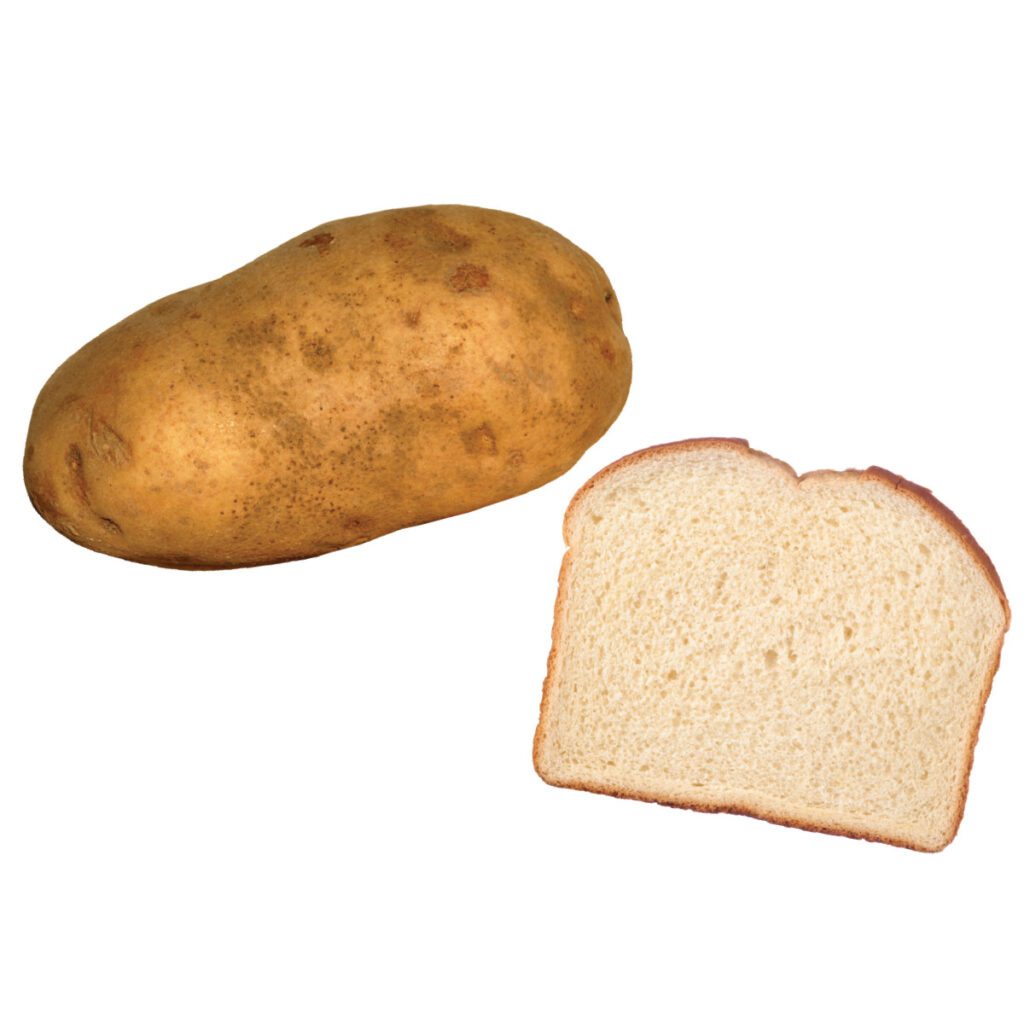What's the Difference?
Have you ever thought about going on a low-carb or even no-carb diet? Before you join in the quest to cut carbs, read on to learn the role carbohydrates play in a complete diet – and which types are worth keeping.
Full PDF here.
Carbohydrates 101
Carbohydrates are used by your body to make glucose, which is your brain and body’s primary fuel. They can be found in:
- fruits
- vegetables
- breads
- cereals
- grains
- milk
- foods containing added sugars
It’s a misconception that all carbs are “bad.” In fact, they are particularly important for those who exercise or perform strenuous activity as they supply energy. It is recommended that you get around 45 to 65% of your daily calories from carbohydrates, but make sure you’re incorporating the right kinds of carbs into your diet.

Simple Carbs vs. Complex Carbs
There are two main types of carbohydrates: complex carbohydrates and simple carbohydrates. Knowing the difference can help you determine what to keep in your diet and what to shy away from. You’ll often hear the words “good” and “bad” used to refer to complex and simple carbohydrates, but do you know the difference between the two?
Simple carbohydrates, often referred to as “bad carbs,” are sugars. They are rapidly digested, making them the quickest source of energy. Simple carbs cause a fast spike in blood sugar, leading to a rush of energy and then a drop. Simple carbohydrates are processed foods that offer little nutrition and are low in dietary fiber.
Some examples of simple carbohydrates are:
- White Bread
- Table Sugar
- Fruit Drinks and Soft Drinks
- Candy
- Jams and Jellies
Complex carbohydrates, or “good” carbs, are a dietary starch rich in fiber. They’re commonly found in whole plant foods and are high in vitamins and minerals. Complex carbs are considered good because they are digested more slowly and deliver a steady supply of sugar to the bloodstream. When sugar is delivered to cells gradually, it can be burned for stable energy levels.
Great sources of complex carbohydrates are:
- Green Veggies
- Whole Grains
- Brown Rice
- Whole Wheat Pasta
- Starchy Vegetables
- Potatoes
- Corn
- Legumes
- Beans
- Lentils
- Some Dairy Products
- Soy Milk
- Low-Fat Yogurt
- Skim Milk
Incorporating complex carbohydrates into your diet is a great way to boost your fiber intake, provide you with energy, and even protect against certain health problems. So next time you’re tempted to jump on the low-carb bandwagon, just remember – some carbs are worth keeping around!

